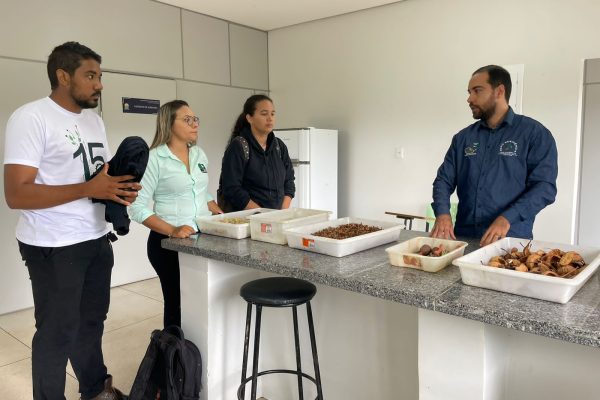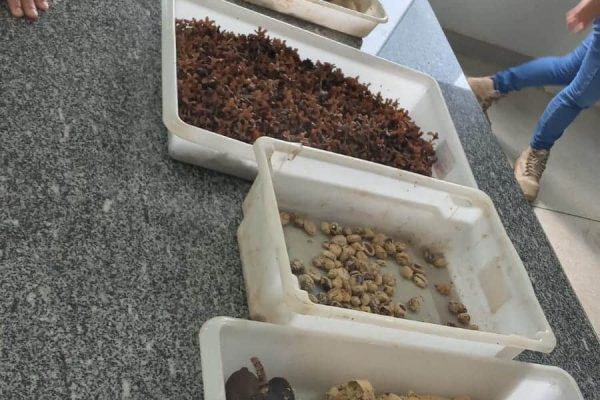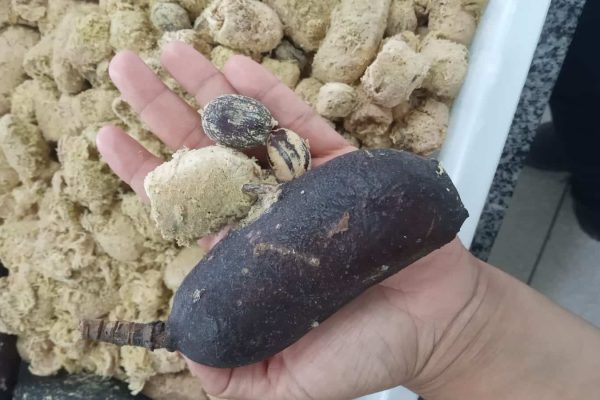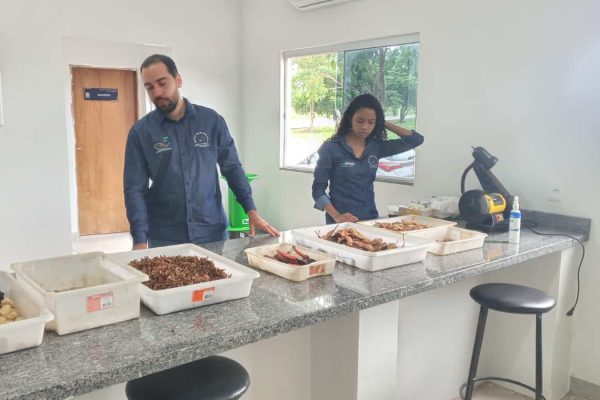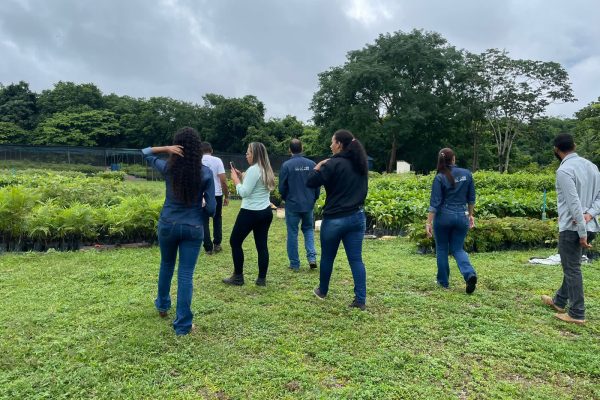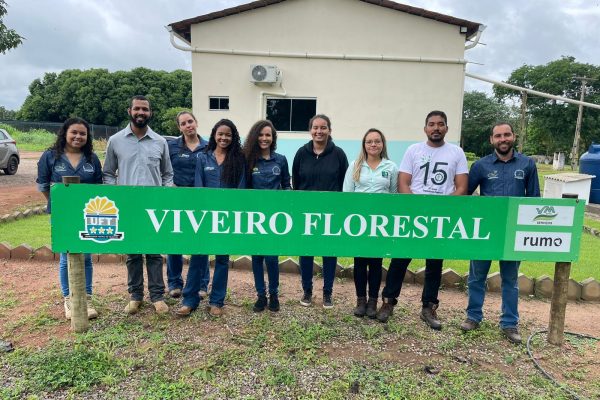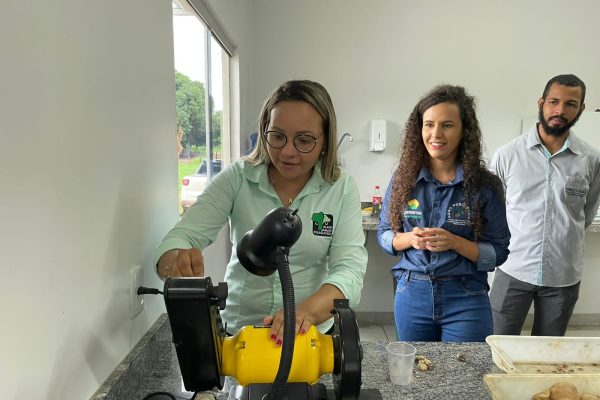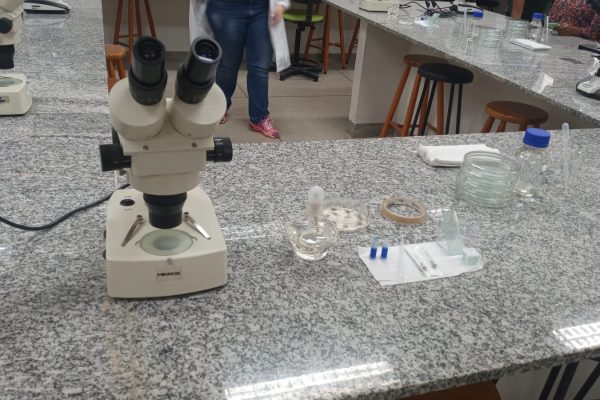Our seedling production analyst, Norivânia Diniz, was invited to participate in the second Integrated Academic Week organized by the Federal University of Tocantins!
During the event, Norivânia participated in several courses related to seed collection, recovery of degraded areas, legal aspects of Permanent Preservation Areas (APP) and forest seed pathology.
Course 1: Collecting, processing and storing native seeds from the Cerrado Savanna.
The following topics were explored in the course:
- Permanent Preservation Areas (APPs) and Legal Reserves (RLs): the importance of ecologically restoring degraded areas how this relates to Brazilian law.
- Ecological restoration techniques, including the following three methods which are used by the Black Jaguar Foundation: Natural regeneration, planting seedlings and direct seeding (muvuca).
- Seed collection techniques: locating parent trees, collection methods, types of seed processing, breaking dormancy of seeds, and seed storage.
At the end of the course, Norivânia and the other participants visited one of the University’s tree nurseries. There, the class was able to get to know the space, equipment used, how it operates, and Exchange experiences.
The course was taught by students from the The Federal University of Tocantins’ nursery research group. It was made possible by the university’s agricultural residency program in partnership with Santana do Araguaia’s Ministry of Environment. A big thank you for the wonderful opportunity!
The nursery research group is currently starting a seed network in the South of Tocantins to meet the demand for seeds in the region and produce high-quality seedlings.
Course 2: Forest seed pathology
The following topics were explored in the course:
- Importance of seed health.
- Transporting seeds between regions.
- The difficulty of obtaining high-quality seeds.
- How the presence of pathogens affects the ability of seeds to germinate.
- Parts of the seed which can contain fungi and how prevent/ control this.
- Symptoms that appear after the seed has been affected by pathogens.
- Regulations for Seed Analysis (RAS), as published by the Ministry of Agriculture.
- Main methods for detecting pathogens in seeds.
- Most common fungi that can be present in seeds
At the Black Jaguar Foundation, we are always looking to improve our processes of ecological restoration. Our motivation to keep on growing and learning, together with your support, will enable us to carry out the Araguaia Biodiversity Corridor!

